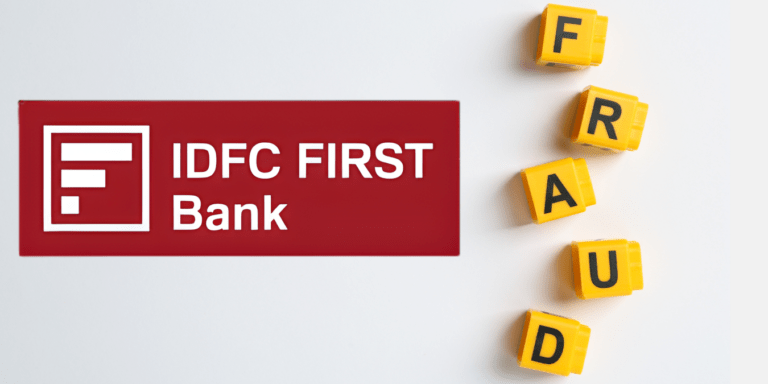
” The RBI’s announcement on Sovereign Gold Bond (SGB) 2025 premature redemption dates from April to September 2025. Learn about SGB features, benefits, tax implications, and how to redeem early. Make informed gold investments with this comprehensive guide on SGBs.”
Investing in gold has always been a popular choice for Indians, given its cultural significance and its reputation as a safe-haven asset. The Sovereign Gold Bond (SGB) scheme, introduced by the Government of India in collaboration with the Reserve Bank of India (RBI), has emerged as a lucrative option for investors looking to invest in gold without the hassles of physical storage. Recently, the RBI announced the premature redemption dates for Sovereign Gold Bonds (SGB) Series 2025, spanning from April to September 2025. This blog post will delve into the details of the SGB scheme, the significance of the premature redemption dates, and how investors can make the most of this opportunity.
What are Sovereign Gold Bonds (SGB)?
Sovereign Gold Bonds are government securities denominated in grams of gold. They are issued by the RBI on behalf of the Government of India. Investors can purchase these bonds in multiples of grams, with a minimum investment of one gram. The bonds are a secure way to invest in gold, as they are backed by the sovereign guarantee of the Government of India.
Key Features of Sovereign Gold Bonds:
- Interest Rate: SGBs offer an annual interest rate of 2.50% on the initial investment, payable semi-annually.
- Tenure: The bonds have tenure of 8 years, with an option to exit after the 5th year.
- Tax Benefits: The interest earned on SGBs is taxable under the Income Tax Act, 1961. However, the capital gains tax on redemption is exempted if the bond is held until maturity.
- Redemption: The bonds are redeemed at the prevailing market price of gold at the time of maturity or premature redemption.
RBI’s Announcement: Premature Redemption Dates for 2025
The RBI has announced the schedule for premature redemption of Sovereign Gold Bonds for the period from April to September 2025. This schedule is crucial for investors who wish to redeem their bonds before the maturity date.
Key Points of the Announcement:
- Redemption Window: Investors can submit their requests for premature redemption within the specified periods.
- Eligibility: Bonds issued in specific tranches between 2017 and 2020 are eligible for premature redemption in 2025.
- Redemption Price: The redemption price will be based on the simple average of the closing price of gold of 999 purity for the previous three business days from the date of redemption, as published by the India Bullion and Jewellers Association Ltd (IBJA).
Detailed Schedule for Premature Redemption
The RBI has provided a detailed schedule for the premature redemption of SGBs. Below is the list of tranches eligible for redemption between April and September 2025:
| Tranche | Issue Date | Redemption Date | Submission Period |
| 2017-18 Series III | October 16, 2017 | April 16, 2025 | April 1-10, 2025 |
| 2017-18 Series IV | November 13, 2017 | May 13, 2025 | May 1-10, 2025 |
| 2017-18 Series V | December 11, 2017 | June 11, 2025 | June 1-10, 2025 |
| 2017-18 Series VI | January 8, 2018 | July 8, 2025 | July 1-10, 2025 |
| 2017-18 Series VII | February 5, 2018 | August 5, 2025 | August 1-10, 2025 |
| 2017-18 Series VIII | March 5, 2018 | September 5, 2025 | September 1-10, 2025 |
How to Redeem Sovereign Gold Bonds Prematurely
Investors looking to redeem their Sovereign Gold Bonds prematurely need to follow a specific process. Here are the steps involved:
Step 1: Check Eligibility
Ensure that your SGB tranche is eligible for premature redemption as per the RBI’s schedule.
Step 2: Submit Redemption Request
Submit your redemption request within the specified submission period. This can be done through the bank or financial institution where the bonds were purchased.
Step 3: Verification and Processing
The bank or financial institution will verify the request and process the redemption. The redemption price will be credited to the investor’s bank account.
Tax Implications of Premature Redemption
Premature redemption of Sovereign Gold Bonds has specific tax implications:
- Capital Gains Tax
Capital gains arising from the redemption of SGBs are exempt from tax if held until maturity. However, if redeemed prematurely, the gains are taxable as per the investor’s income tax slab.
- Interest Income
The interest earned on SGBs is taxable under the head “Income from Other Sources” and is subject to tax as per the investor’s income tax slab.
How to Apply for Premature Redemption?
Investors who wish to redeem their SGBs prematurely must follow these steps:
- Check Eligibility: Ensure that your SGBs are eligible for premature redemption. Only bonds that have completed 5 years from the date of issuance are eligible.
- Submit Application: Submit a duly filled application form for premature redemption to the concerned bank or post office where the bonds were purchased.
- Provide Necessary Documents: Along with the application form, provide the necessary documents, including the original bond certificate and a valid ID proof.
- Await Confirmation: Once the application is processed, the redemption amount will be credited to the investor’s bank account.
Factors to Consider Before Premature Redemption
Before opting for premature redemption, investors should consider the following factors:
- Market Price of Gold: The redemption value of SGBs is based on the prevailing market price of gold. Investors should monitor gold prices to determine the optimal time for redemption.
- Interest Earnings: Premature redemption means forfeiting the future interest payments that would have been earned if the bond was held until maturity.
- Tax Implications: While the capital gains on SGBs are tax-free if held until maturity, premature redemption may attract capital gains tax. Investors should consult a tax advisor to understand the tax implications.
Benefits of Investing in Sovereign Gold Bonds
Investing in Sovereign Gold Bonds offers several advantages over physical gold and other gold investment options:
- No Storage Hassles: Unlike physical gold, SGBs do not require storage or insurance, eliminating the associated costs and risks.
- Guaranteed Returns: SGBs offer a fixed interest rate of 2.50% per annum, providing a steady income stream.
- Liquidity: While SGBs have a lock-in period of 5 years, they can be traded on stock exchanges, providing liquidity to investors.
- Sovereign Guarantee: SGBs are backed by the Government of India, making them a safe and secure investment option.
- Tax Benefits: The capital gains on SGBs are tax-free if held until maturity, making them a tax-efficient investment.
How to Invest in Sovereign Gold Bonds?
Investing in Sovereign Gold Bonds is a straightforward process. Here’s how you can invest:
- Eligibility: Resident individuals, HUFs, trusts, universities, and charitable institutions are eligible to invest in SGBs.
- Application Process: SGBs can be purchased through scheduled commercial banks, designated post offices, and stock exchanges like the NSE and BSE.
- Payment: The payment for SGBs can be made through cash (up to ₹20,000), demand draft, cheque, or electronic banking.
- Issuance: Upon successful application, the bonds are issued in dematerialized form and credited to the investor’s demat account.
Historical Performance of Sovereign Gold Bonds
Since their inception in 2015, Sovereign Gold Bonds have delivered impressive returns to investors. The price of SGBs is linked to the market price of gold, which has shown a consistent upward trend over the years. For instance, the price of gold in India has increased from around ₹26,000 per 10 grams in 2015 to over ₹50,000 per 10 grams in 2023, reflecting a significant appreciation in value.
Risks Associated with Sovereign Gold Bonds
While SGBs offer several benefits, they are not entirely risk-free. Investors should be aware of the following risks:
- Market Risk: The price of SGBs is linked to the market price of gold, which can be volatile. A decline in gold prices can lead to a reduction in the redemption value.
- Liquidity Risk: Although SGBs can be traded on stock exchanges, the secondary market for these bonds may not be very liquid, making it difficult to sell them at the desired price.
- Interest Rate Risk: The fixed interest rate of 2.50% may not keep pace with inflation, leading to a reduction in real returns.
The Sovereign Gold Bond (SGB) scheme is an excellent investment option for those looking to invest in gold without the hassles of physical storage. With the RBI announcing the premature redemption dates for SGB 2025, investors have the flexibility to exit their investment after the 5th year, depending on their financial goals and market conditions. However, it is essential to consider factors such as the market price of gold, interest earnings, and tax implications before opting for premature redemption.
Investing in SGBs offers several benefits, including guaranteed returns, tax benefits, and the sovereign guarantee of the Government of India. However, like any investment, SGBs come with their own set of risks, and investors should carefully evaluate these before making a decision.
As the price of gold continues to rise, SGBs present a compelling investment opportunity for both seasoned and novice investors. By staying informed about the latest developments, such as the premature redemption dates for SGB 2025, investors can make well-informed decisions and maximize their returns.
Frequently Asked Questions (FAQs)
Q1: What are Sovereign Gold Bonds?
A1: Sovereign Gold Bonds (SGBs) are government securities denominated in grams of gold, issued by the RBI on behalf of the Government of India.
Q2: How can I redeem my SGBs prematurely?
A2: Investors can redeem their SGBs prematurely by submitting a redemption request within the specified submission period as per the RBI’s schedule.
Q3: What is the interest rate on SGBs?
A3: SGBs offer a fixed interest rate of 2.5% per annum, payable semi-annually.
Q4: Are there any tax benefits for investing in SGBs?
A4: Yes, capital gains tax arising on redemption of SGBs to an individual is exempted. However, the interest earned is taxable.
Q5: Can I trade SGBs on stock exchanges?
A5: Yes, SGBs can be traded on stock exchanges within a fortnight of issuance, providing liquidity to investors.
-
22K Gold Price Hyderabad Bengaluru Today: Compare with Delhi Mumbai for Smart Buys
Gold and silver prices in India on February 25, 2026, show modest gains amid global uncertainties and local
-
Indian Stock Market Trends: Is This The Start Of A New Cycle For Sensex, Nifty 50 And Bank Nifty?
Indian equities are entering Wednesday, 25 February 2026 in a fragile but opportunity-rich zone—after a sharp sell-off, solid
-
Why Is the Stock Market Falling Today? Nifty Below 25,500 and 5% Crash in IT Explained
Nifty crashed 1% and IT stocks collapsed 5% today — but the real reason will shock you. An
































